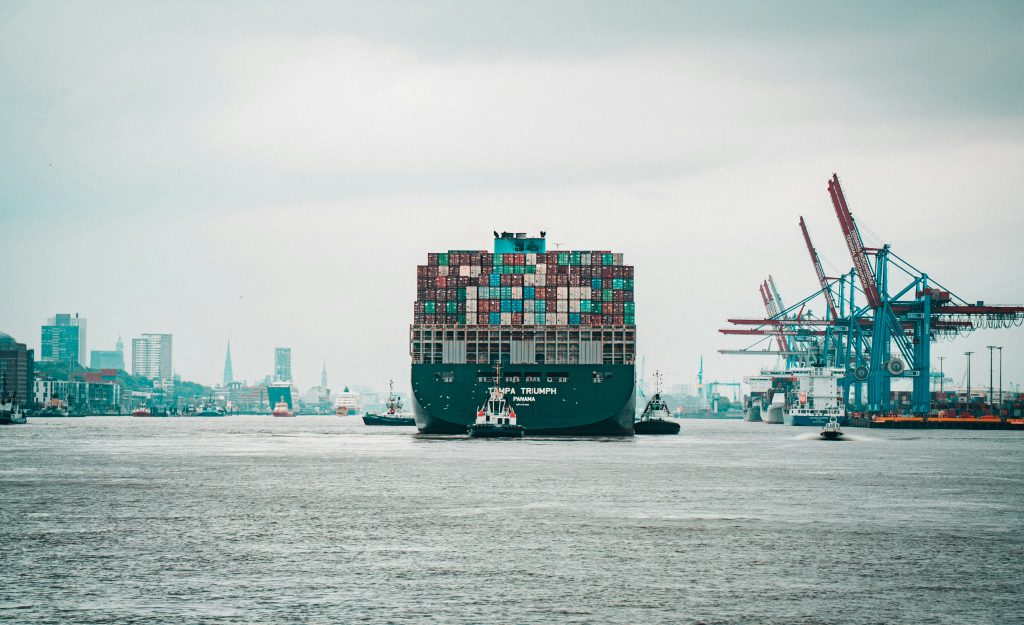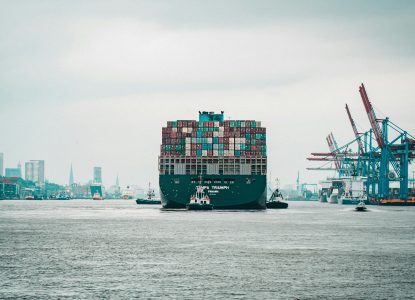By JoAnne Wadsworth, Communications Consultant, G20 Interfaith Forum.
– – –
On August 28th, 2025, the G20 Interfaith Forum, in partnership with Praeveni Global, hosted a webinar examining the effectiveness of forced labor import bans as tools for corporate behavior change. The discussion, moderated by Duncan Jepson, Director of Strategy and Operations at Praeveni Global, addressed recent academic debate sparked by Professor Judy Fudge’s critique that trade restrictions may harm workers by forcing exploitative firms to close without providing safety nets, countered by human rights attorneys Anasuya Syam and Martina Vandenberg’s argument that import bans effectively push companies toward supply chain remediation.
The panel featured Ana Hinojosa, former federal senior executive leader with over 34 years of experience in law enforcement who previously directed U.S. Customs and Border Protection’s Trade Threat Assessment Units focused on detecting forced labor violations; Chavi Keeney Nana, professor of practice at the University of Michigan Law School and Director of the Equitable Global Supply Chain Program at the Interfaith Center on Corporate Responsibility; and Dean Pinkert, trade and human rights consultant with the Corporate Accountability Lab who served 10 years as a commissioner at the U.S. International Trade Commission.
The Enforcement Evolution
Section 307 of the Tariff Act of 1930 prohibits goods made with forced labor from entering U.S. ports, but a “consumptive demand” loophole historically rendered it toothless—if domestic demand couldn’t be met without the foreign goods, imports were allowed anyway. The 2016 elimination of this clause theoretically opened enforcement floodgates, but Customs and Border Protection (CBP) had to build enforcement capabilities from scratch.
Hinojosa described inheriting an office under intense pressure from Congress, civil society, and the White House to rapidly scale up enforcement of a law the agency had rarely used. Currently, 52 Withhold Release Orders (WROs) block imports from specific companies across industries from Chinese cotton to Malaysian palm oil to Korean salt.
“Customs and Border Protection is a huge organization with responsibilities for enforcement in different parts of the agency, and it required, really, a symphony of work to be able to get these things done.”
The development process required new investigative protocols, documentation standards, and unprecedented coordination across CBP’s various enforcement divisions.

Corporate Stakeholder Disruption
The enforcement mechanism creates cascading effects throughout corporate structures, forcing legal and procurement departments into previously unnecessary collaborations while affecting everyone from sales teams facing reduced bonuses to auditors signing off on supply chain disclosures.
Keeney Nana explained how these laws fundamentally shift corporate accountability expectations, making ignorance of supply chain conditions legally and financially risky.
“If you’re ‘not tolerating any forced labor violations’ and you don’t know what’s in your supply chain, those two things don’t match for me.”
From an investment perspective, forced labor violations represent both immediate revenue losses and long-term operational risks. Institutional investors increasingly view supply chain transparency as essential due diligence, while enforcement actions can trigger broader stakeholder scrutiny of corporate practices.
Civil Society’s Strategic Intent
Civil society organizations filing petitions for enforcement actions explicitly reject protectionist motivations, instead seeking to hold U.S. companies accountable for overseas human rights violations in their supply chains. Before 2016, many organizations pursued alien tort statute cases in federal court, but those legal avenues were increasingly restricted by judicial decisions.
Pinkert emphasized that the goal extends beyond market exclusion toward creating economic incentives for workplace improvements.
“The objective on civil society’s end is to help the workers in those countries that struggle with forced labor, not to cause disengagement from the economy.”
Organizations like the Corporate Accountability Lab work with Department of Labor and CBP officials to develop “worker-centered remediation” processes that empower affected workers rather than simply cutting off trade relationships.
Global Policy Cascades
The enforcement approach has prompted significant international policy changes. Malaysia implemented housing standards for migrant workers for the first time, while various countries have established grievance mechanisms and strengthened labor law enforcement in response to U.S. trade actions.
Hinojosa observed a predictable pattern in both corporate and governmental responses to enforcement actions.
“First, it’s the company, and then it’s the country that go through these seven stages of grief: ‘No, impossible. Not us. Can’t be us. There’s no forced labor here.'”
The approach has also influenced broader U.S. trade policy, with labor provisions now standard in trade agreements and specialized enforcement coordination through the Forced Labor Enforcement Task Force spanning multiple federal agencies.
Enforcement Tools and Circumvention
Beyond import exclusion, CBP possesses underutilized enforcement mechanisms including civil penalties for attempted violations and seizure/forfeiture authorities. These tools could significantly strengthen deterrent effects but have seen limited deployment to date.
However, companies are developing sophisticated circumvention strategies. “Bifurcated supply chains” route products made with forced labor to markets without import restrictions while sending clean products to restricted markets. Transshipping through third countries disguises origin, particularly challenging for Uyghur Forced Labor Prevention Act enforcement targeting China’s Xinjiang region.
“With the Uyghur Forced Labor Prevention Act, there’s an incentive to disguise where the goods are coming from. And that’s something that I know the U.S. government is engaged in investigating.”
Measuring Complex Outcomes
The debate over import ban effectiveness reflects broader tensions in using trade policy for human rights objectives. Critics correctly identify risks of economic disruption without adequate worker protection, while supporters point to evidence of systemic changes in labor standards and corporate practices.
The panel revealed how enforcement has evolved beyond simple border restrictions toward comprehensive supply chain accountability. Companies now invest heavily in traceability systems and due diligence processes, while preliminary research suggests larger suppliers in the Global South are modifying practices to maintain market access.
Rather than viewing trade enforcement as isolated policy tools, the discussion positioned them within broader frameworks encompassing corporate accountability, investor engagement, and international coordination. Success depends not only on enforcement capability but also on continued civil society monitoring, institutional investment strategies, and multilateral cooperation as similar laws emerge in the European Union and other jurisdictions.
The webinar demonstrated that while forced labor import bans face legitimate implementation challenges, they have created meaningful incentives for supply chain transformation when embedded within comprehensive enforcement and remediation frameworks.
– – –
JoAnne Wadsworth is a Communications Consultant for the G20 Interfaith Forum Association and Editor of the Viewpoints Blog.


